Protein is an essential component of any diet. Our body needs protein to function, and it’s required to build and repair tissues, make hormones, and fight off disease.
However, some people don’t eat any kind of animal or animal products for a variety of reasons. Some people choose to be vegetarian for health reasons, while others prefer to be vegan because of animal rights and environmental issues. Whatever the reason is, meatless meals can be hard to manage without any prior experience or lack of accurate information. But you don’t need to miss out on protein. In this article, we’ll look over some healthy vegan alternative protein sources.
Why Do We Crave Protein?
Protein is a crucial element of our diet, comprising roughly 17 percent of our body weight. It is the primary constituent of our muscles, skin, and internal organs, notably the heart and brain, as well as our eyes, hair, and nails.
Our immune system needs protein to assist in the production of antibodies necessary to fight against infections. Protein also plays a part in the management of blood sugar levels, the metabolism of fat, and the function of energy.
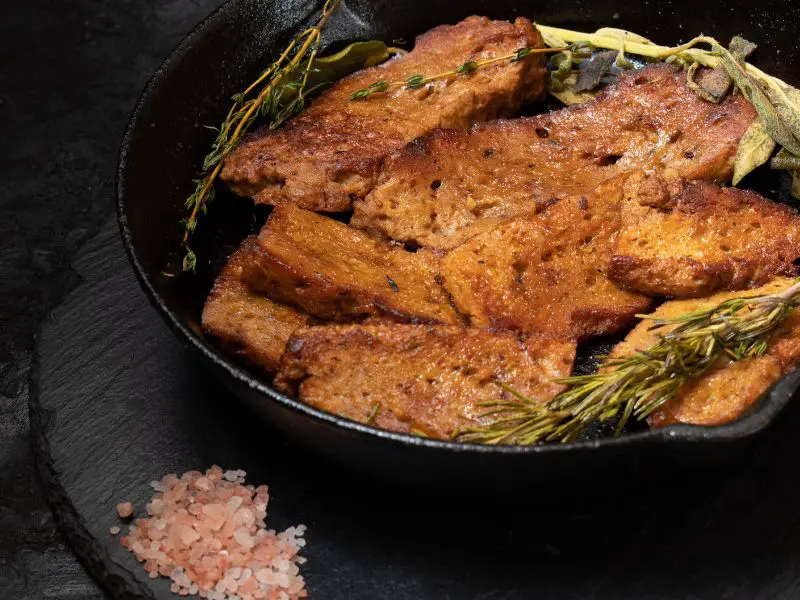
How Much Protein Do We Need?
According to The Reference Nutrient Intake (RNI), the protein needed for a typical adult is 0.75 grams per kg of body weight daily. Therefore, an adult weighing 60kg requires 60 x 0.75g per day or 45g. Individuals weighing 74 kg would need 74 x 0.75 grams daily or 55 grams.
Can You Overdose on Protein?
The liver and kidneys play significant roles in protein digestion. Consuming too much may raise the danger of blood ammonia, urea, and amino acid buildup. High quantities of protein in the body may produce protein poisoning, which can be lethal.
Excessive protein consumption is over 2 grams per kg of body weight. But for overweight individuals, the calculations need adjusting. Seek a dietitian to help you make a plan that fits your needs.
Can You Fill Your Protein Needs With Vegan Alternative Protein?
Don’t believe anyone who claims vegans will struggle to get enough protein. Some plants are protein-rich, particularly beans, legumes, pulses, grains, nuts, seeds, and certain vegetables. Always make sure that you have a high-quality plant protein source or mix to help you consume adequate protein.
10 Vegan Alternative Protein Foods
1. Beans
Beans are a great source of protein. They are cheap, easy to prepare (just boil and easy to freeze), and available in different types and flavors. Beans are a great source of fiber, iron, and potassium; however, it’s best to avoid canned beans as they contain sodium. Try different dried beans such as black beans, kidney beans, chickpeas, adzuki beans, and navy beans. For a more filling meal, try adding beans to a salad.
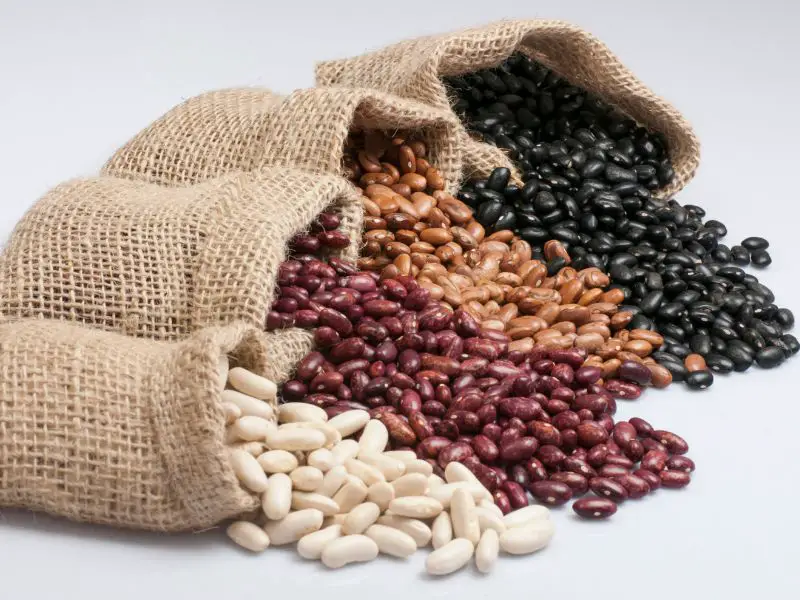
2. Tofu
Tofu is a soy-based dairy alternative that’s high in protein. You can buy Tofu in blocks of Tofu, but you can also find it in vegetarian “burgers” or “tuna” salads. Tofu is also a good source of protein if you’re lactose intolerant or vegan. It’s also a source of all the much-needed amino acids.
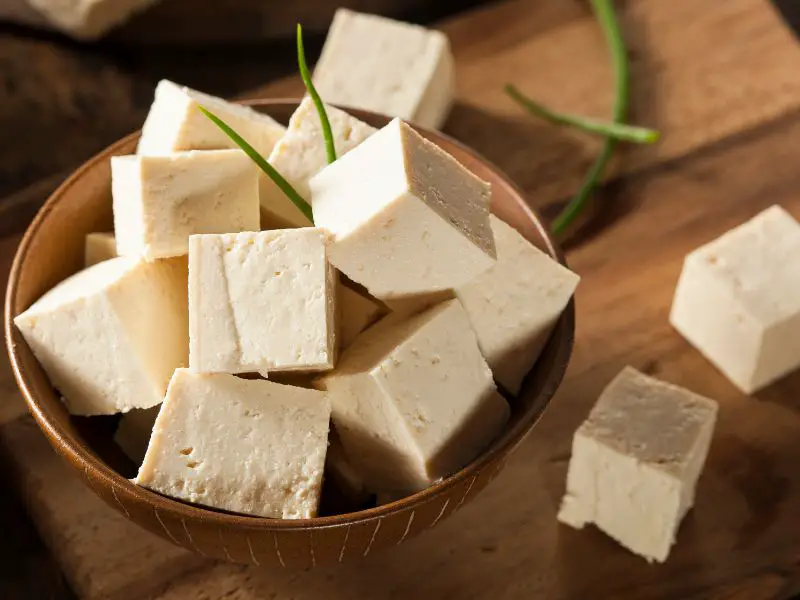
3. Quinoa
Quinoa is an excellent source of protein and fiber. It’s also gluten-free and contains iron and magnesium. The taste and texture of quinoa are similar to that of rice; however, quinoa has a slightly nutty flavor. You can cook quinoa in a rice cooker or in the same way you would cook rice.
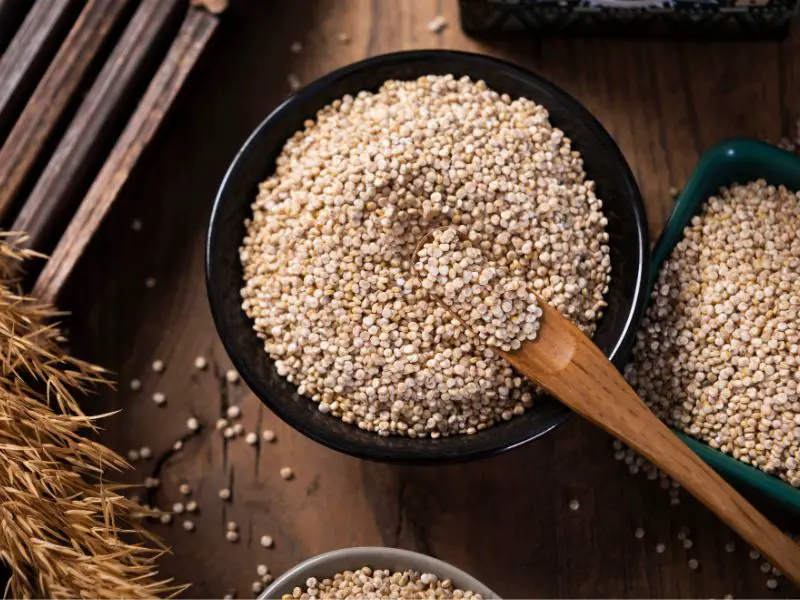
4. Seitan
Seitan is a wheat protein popular in vegetarian and vegan dishes. Seitan is high in protein and a great alternative to meat. You can try seitan in stir-fries, curries, or sandwiches. Wheat gluten (Seitan), often known as wheat meat, has around 25 grams of protein per 3.5 ounces (100 grams), putting it among the richest sources of plant protein available.
5. Lentils
Lentils are a good source of protein, fiber, and iron. They also contain vitamin B6 and folate. Lentils are versatile and are great in soups, stews, and salads. They may be used in several recipes, including fresh salads, savory soups, and dahls steeped with spices. In addition, the fiber in lentils is beneficial to your gut health since it feeds the good bacteria that are already present in your colon. Plus, there is some evidence that consuming lentils might lower one’s risk of developing cardiovascular disease, diabetes, obesity, and some forms of cancer.
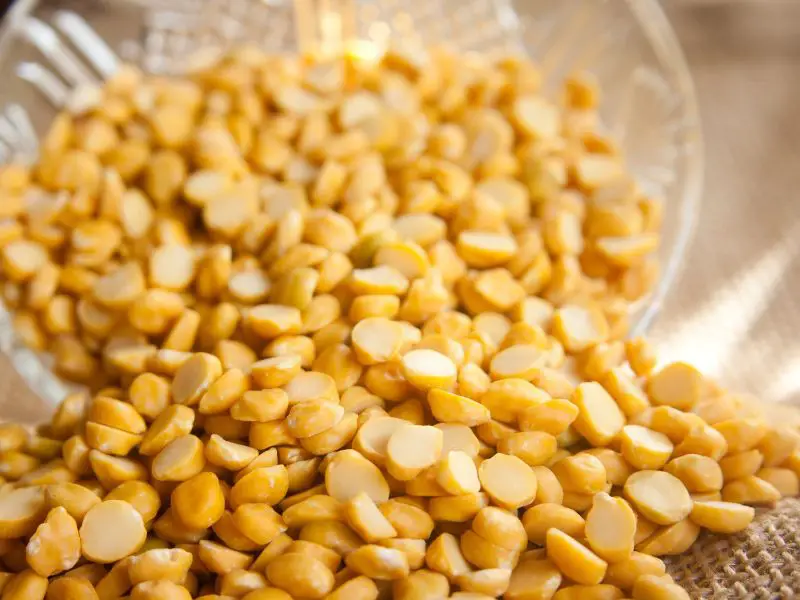
6. Hemp Seeds
Hemp seeds are a superb source of protein and fiber. They contain high magnesium, iron, calcium, zinc, and selenium levels. They are a good source of vitamin E, iron, omega fatty acids, and antioxidants. You can eat hemp seeds in cereal, salads, and smoothies. Other types of seeds include pumpkin seeds and sunflower seeds.
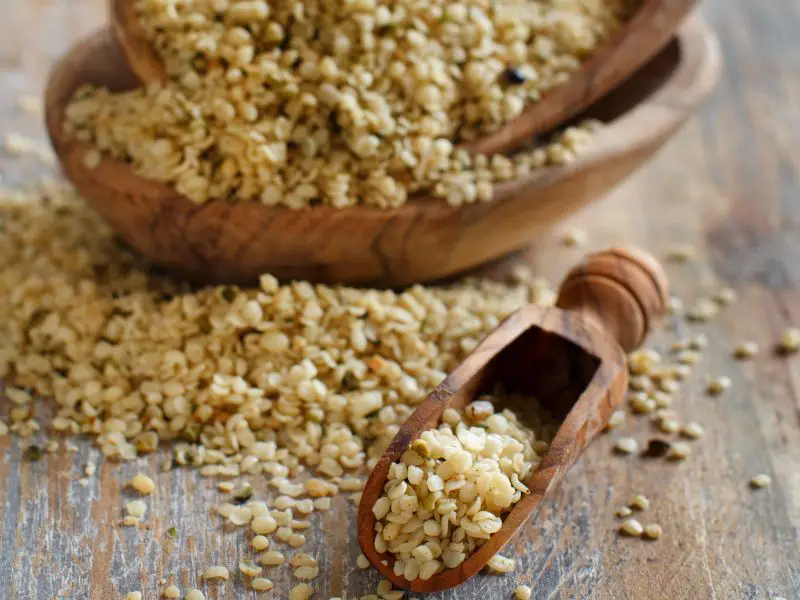
7. Oats
Oatmeal is a good source of fiber and protein. Oats contain antioxidants and are good for your heart. They can be added to smoothies or eaten by themselves for breakfast. While oats may not have all the essential amino acids, they provide better-grade protein than other regularly consumed cereals like rice and wheat.

8. Chia Seeds
Chia seeds are high in fiber, vitamin K, and calcium. They contain omega fatty acids and antioxidants and are a good source of protein. They’re great when added to smoothies or sprinkled on top of a salad. As a result of their mild flavor and propensity to absorb water and produce a gel-like material, they are also highly flexible ingredients. This makes them a simple addition to a wide range of dishes, including smoothies, baked goods, and chia pudding.
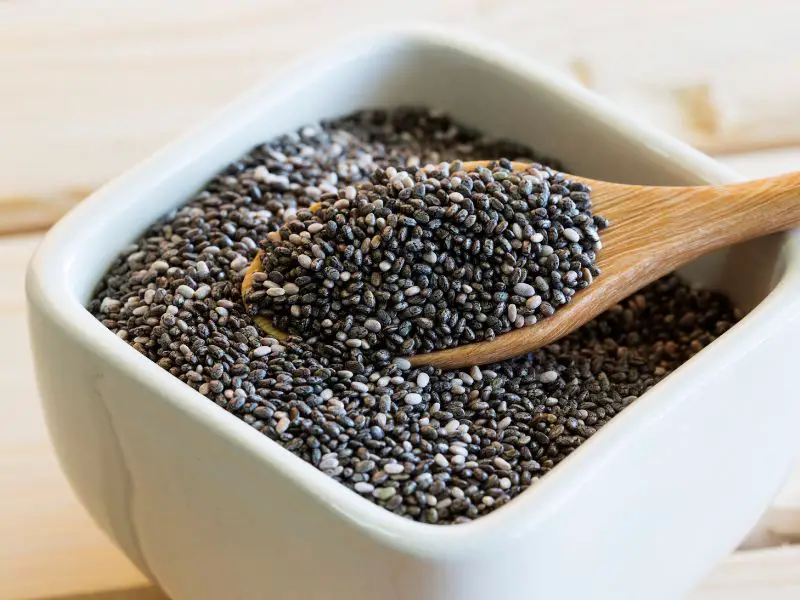
9. Nutritional Yeast
Nutritional yeast is high in vitamin B12 and protein. It’s known as “nooch” to vegans. You can sprinkle nutritional yeast over foods or add it to sauces and dips. Besides being an excellent source of vitamin B12, fortified nutritional yeast is also rich in all the B vitamins, plus zinc and magnesium. But remember that not all nutritional yeast is fortified, so read the label carefully.
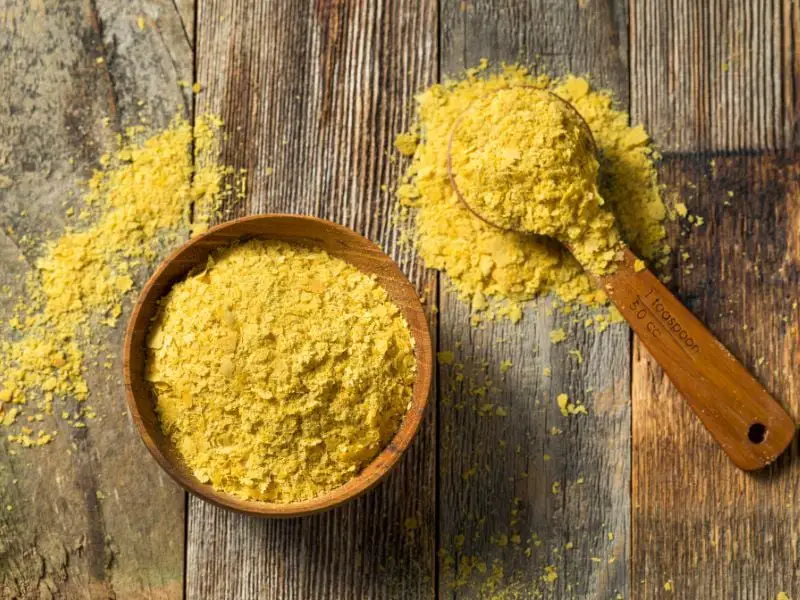
10. Spirulina
This blue-green alga is undeniably a powerhouse regarding its nutritional value. Spirulina is an excellent source of magnesium, riboflavin, manganese, and potassium, as well as more minor levels of the other nutrients necessary for proper bodily function, including vital fatty acids. Spirulina is an excellent source of magnesium, riboflavin, manganese, and potassium, as well as more minor levels of the other nutrients necessary for proper bodily function, including vital fatty acids.

Author’s Note
These vegan meals are high in protein and will leave you feeling satisfied. Try incorporating some of these recipes into your weekly meal plans, and you’ll be eating healthy and enjoying your meals.
Most vegetarians and vegans don’t have trouble getting enough protein, especially if they eat a healthy, well-planned diet. Still, there are many reasons why some people might want to eat more plant-based proteins even if they still eat animal protein regularly. We hope this list has helped you add more plant-based proteins to your diet. Thanks for reading!
It’s now time to check out healthy beverages that you must try and unhealthy drinks that you need to avoid. Find out more about living a sustainable life and staying healthy.

